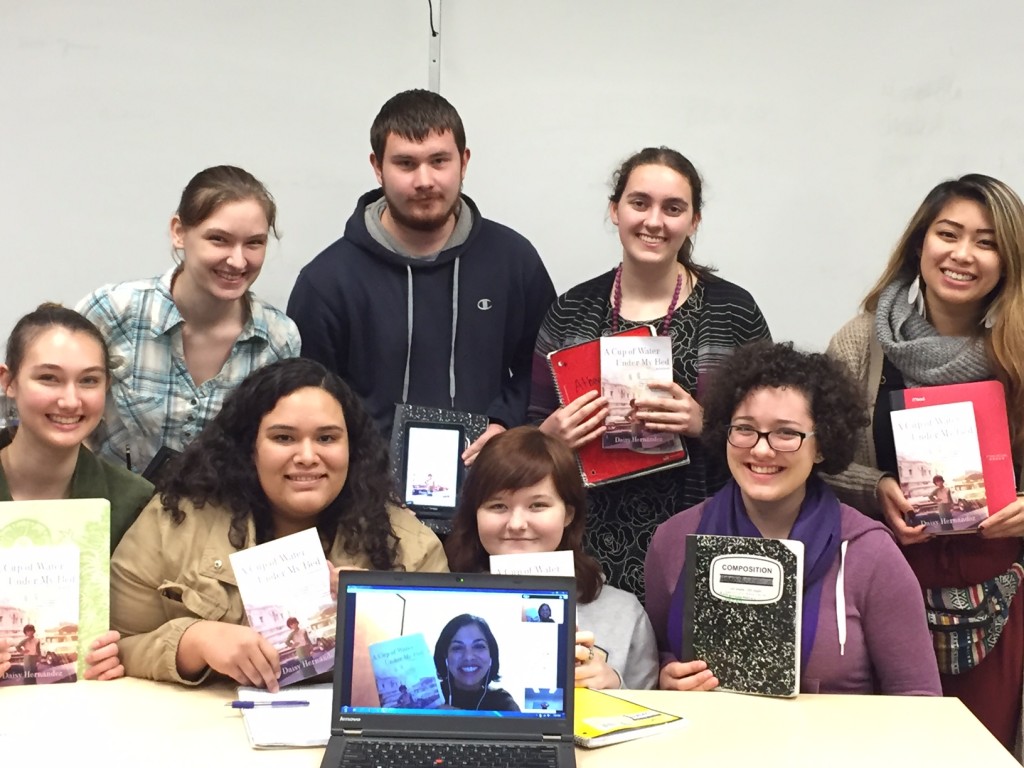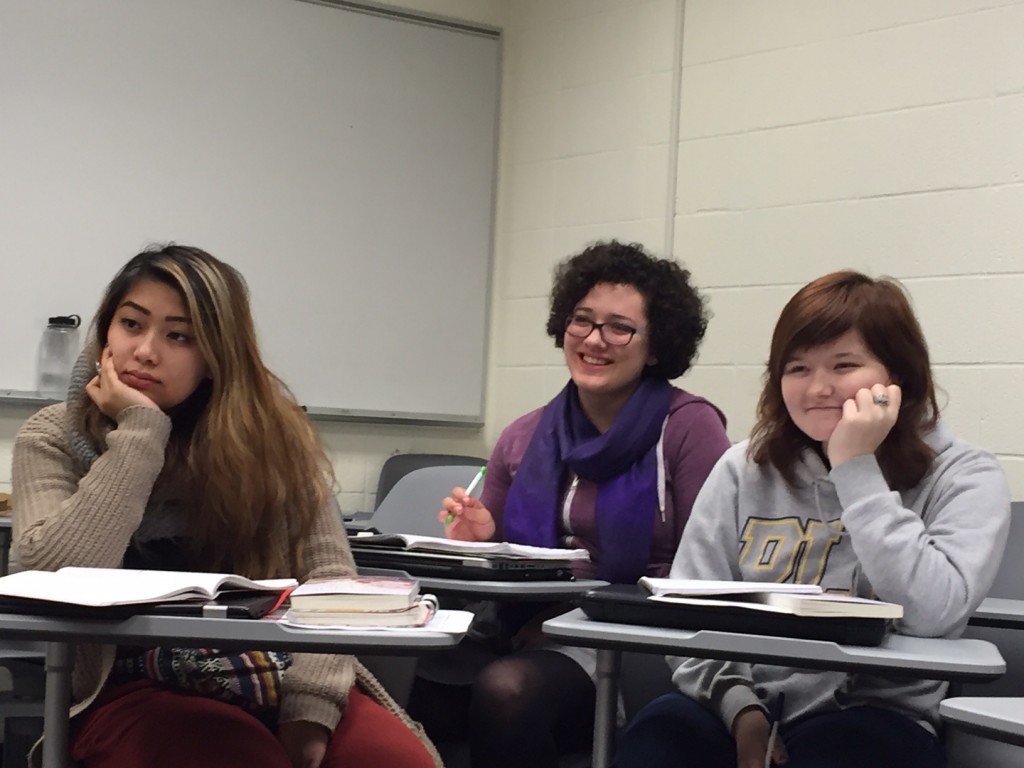Bringing the Literary World to the Classroom
“On December 1st our class had the lovely experience of Skyping with Daisy Hernández,” writes sophomore English/Writing and Classics major Hilary Vo, a student in my Fall 2015 Autobiographical Writing course. “Daisy brought light to her personal writing methods: her ‘emotional’ first drafts that she later revises as a ‘craft’ draft, where she thinks more about the reader. She reinforced the importance of reading your work out loud, something that I have a hard time with. I really empathized with her story as a child of immigrants myself—the constant feeling of betrayal that comes with leaving behind your parents and your culture as you move into the realm of American teenage awkwardness and adulthood.”
Our class devoted a month to studying and drawing literary inspiration from Daisy Hernández’s award-winning memoir, A Cup of Water Under My Bed (Beacon Press, 2014). Hernández spoke with our evening class until it was late at night in Ohio, where she teaches at Miami University. Sophomore Sociology major Athena Gordon observed, “I was surprised that Daisy pulled so much inspiration from other authors. I thought that because writing is very individual in practice, the ideas would be very individual. I was surprised that Daisy interacted so much with other peoples’ texts.”

“It was especially interesting having a face and voice to go with what we had read,” said senior English/Writing major Julianna Schaus. “I’d already had a sense of the way [Hernández] speaks from what she had written, but actually hearing her added another dimension. It led me to reflect on the connection between the way one speaks, writes, and is heard by others.”
Inspired by these students’ positive experiences, I have since hosted three other “virtual visits” to my creative writing and publishing classes. Authors have Skyped in from Eastern Washington, Northern California, and South Florida.
Also in Fall 2015, my Freelance Writing students spoke with Roy Peter Clark, author of our course textbook, Writing Tools (Little, Brown, 2008). Clark is Senior Scholar at Florida’s Poynter Center, a national journalism training institute, and has written or edited eighteen books. He chatted for an hour with PLU students about everything from how to write the perfect story ending to the joys of having tattoos. Most important, he asked students to reflect on the ethical implications of immersion journalism.

In Spring 2016, Spokane-based fiction writer Sam Ligon, who is also editor of the literary journal Willow Springs, spoke with the students in Publishing Procedures, a core course in PLU’s Publishing and Printing Arts program. Students learned about the editorial process from both sides, as Ligon compared the experience of having his work edited, with serving as editor for others’ fiction. Since there are few recent textbooks about editing, Ligon’s visit offered a unique learning experience.
For Introduction to Writing Poetry and Fiction, also in Spring 2016, my students read Arisa White’s poetry collection Hurrah’s Nest (Virtual Arts Collective, 2012). We spoke with Arisa White from her writer’s studio in Oakland, California. Each student posed one question for White, learning about earning a living as a poet, how to appreciate the revision process, and how to develop a cohesive poetry collection. For many students it was the first time they had read an entire book of poetry and considered a full collection—rather than single poems in isolation. For all of them, it was the first time they had been able to speak one-on-one with a poet whose book they had studied.
by Wendy Call


